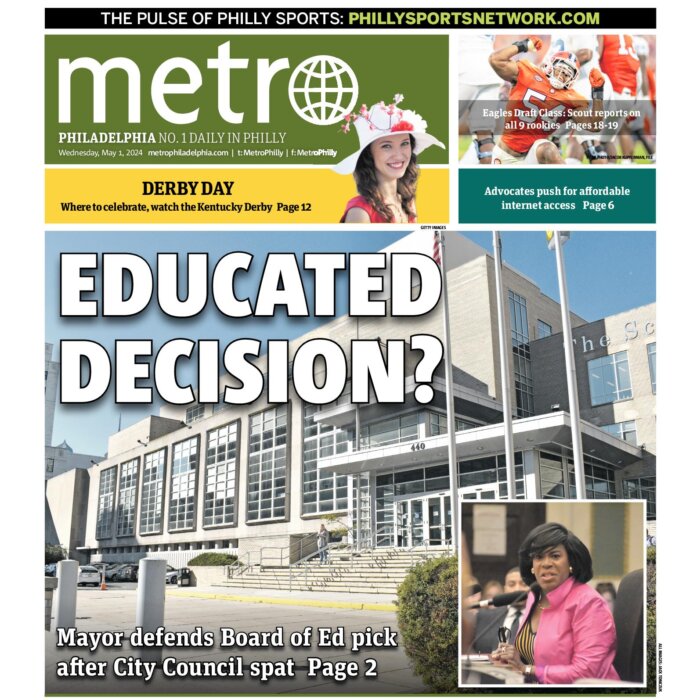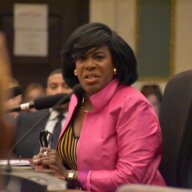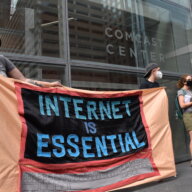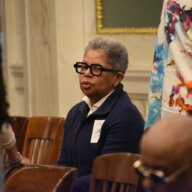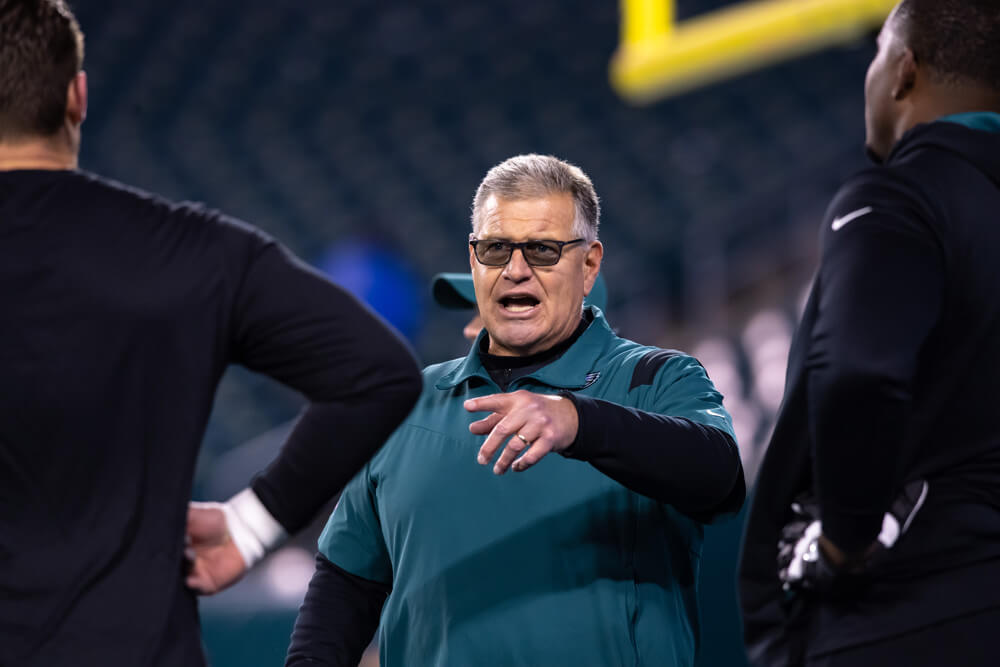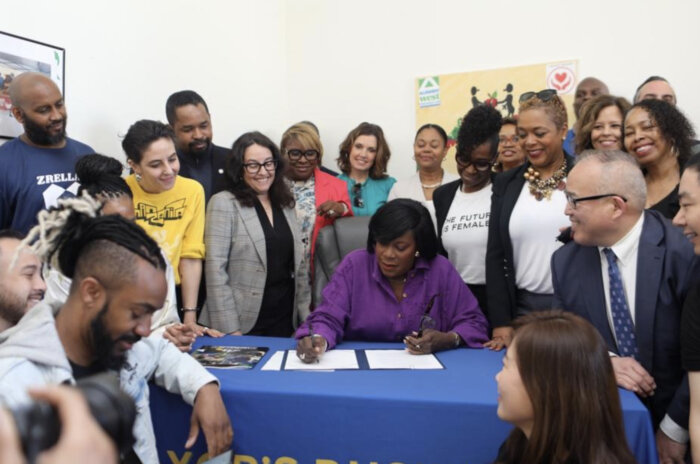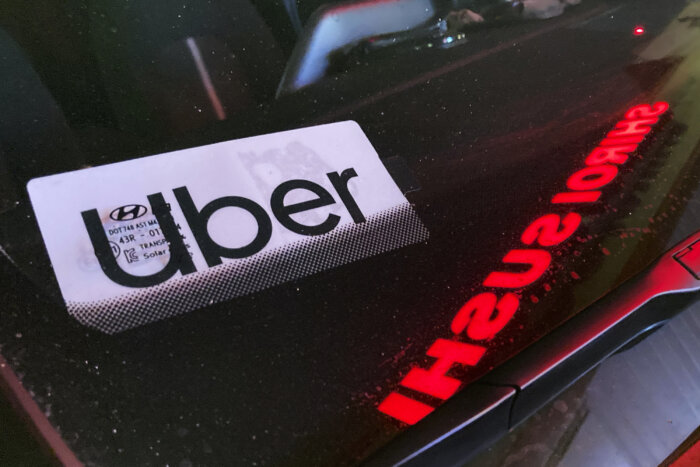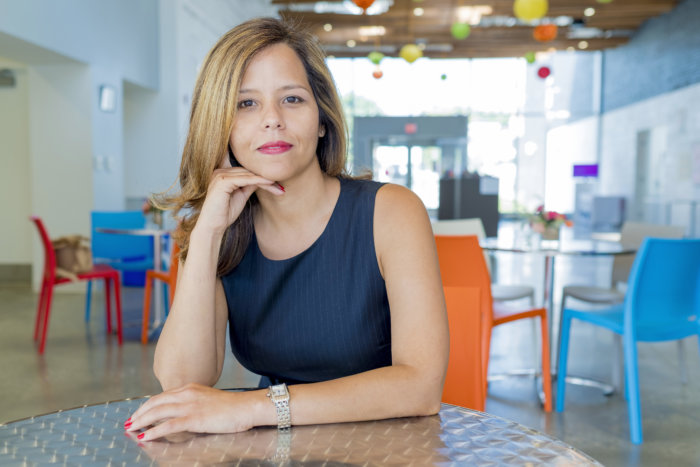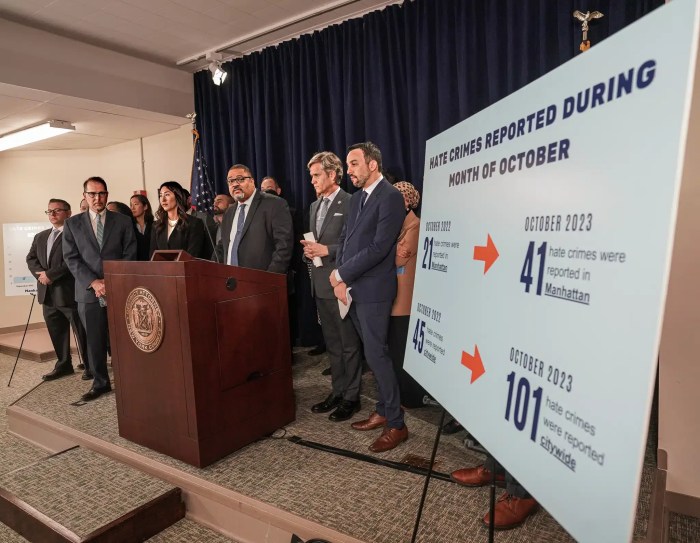While legislation has a significant impact on the lives of LGBTQ+ individuals and the communities they belong to, businesses also have a big part to play in people’s lived realities. Whether it’s in the statements they make on LGBTQ+ acceptance and rights, or inclusive hiring policies, businesses have the opportunity to be the difference between exclusion and inclusion for marginalized groups, including LGBTQ+ communities.
In Philadelphia, and Pennsylvania as a whole, there are numerous initiatives in place advocating for LGBTQ+ job-seekers, employees, entrepreneurs, and organizations to encourage active inclusion of the queer community across multiple industries.
At the US Economic Development Administration, Jonathan Lovitz works to create more opportunities for regional economies to grow. Lovitz sees that when it comes to encouraging businesses and organizations to prioritize inclusive practices and policy for LGBTQ+ individuals, “equality is good for business.”
Zach Wilcha, executive director of Independence Business Alliance, agrees with this sentiment, further emphasizing that “[IBA is] trying to find that space in the middle of the Venn diagram of what is best for our community, and what is good for the bottom line for businesses. And it’s been proven over and over again that for businesses to survive and to thrive, they have to be inclusive.”
The IBA — which also serves as the LGBTQ+ Chamber of Commerce throughout the Greater Philadelphia area — provides “opportunities, access and resources to our LGBTQ+ owned businesses, all of the employees in our community, and our visible allies as well.” Education, action, and connection are their key tenets to ensure avid opportunities and economic empowerment.
Wilcha explains that when he joined IBA, one of his key aims was to revitalize the project to ensure that they’re uplifting all parts of the queer community, including those currently most marginalized. In this, with the help of Marcus Ionazzi, who was featured in our 2022 list, they implemented TransWork. This program was orchestrated to fill a critical gap, “addressing under-and-unemployment by connecting transgender and gender non-conforming folks and entrepreneurs to a network of supportive employers and business partners,” Wilcha explains.
IBA was the first ever Chamber of Commerce to implement such a program, creating a roadmap led by the community with a focus group to figure out what the community actually needs. This led them to running their trans-inclusive work fairs and job preparedness fairs. These involve things like “resume and interview skills, dress code navigation, and what your legal rights are in the workplace and through interview processes,” Wilcha explains.
Still going strong, even through the pandemic, Wilcha says that they’re proud to see their TransWork blueprint has been adapted in other local chambers, including Out Georgia Chamber of Commerce, and in North Texas.
In terms of practices workplaces can implement to be actively inclusive to LGBTQ+ employees and job seekers, Wilcha sees there are three key things — formal company policies, building a welcoming culture, and setting up employee affinity or resource groups, which are then actually listened to. All of these actions need to come from top-down, with leadership being visible and loud in their support for their LGBTQ+ workers and the community as a whole.
“We want people to be active about their allyship,” Wilcha says, “whether it’s with symbols on doors or pronouns, you have to remember that ally is a verb.”
Importantly, Wilcha also says this active allyship should be taking place throughout the year, and not just in Pride Month every June. “Real allyship happens when we are celebrating, uplifting, and empowering communities beyond the obvious times that you’re supposed to,” Wilcha explains. In this vein, Wilcha says that inclusive hiring policies are a perfect way to show this consistent, year-round support.
At the US Economic Development Administration, Lovitz sees that “businesses can remember that subtlety is powerful — that simply putting a public facing “all are welcome” sign and an internal set of non-discrimination policies can be just as powerful as marching in the parade.”
Lovitz argues that inclusivity is vital, “Whether you’re trying to attract the best and brightest talent, get the most diverse customer base, or reach markets that are looking specifically to spend money with their values. [People] want to see that reflected in the companies that they work with.”
With an estimated spending power of $917 billion, and LGBTQ+ business owners contributing $1.7 trillion to the economy, LGBTQ+ community members are essential. “It’s not only morally wrong to discriminate, it is the worst decision you could possibly make economically,” Lovitz says.
Both Lovitz and Wilcha add that inclusion for LGBTQ+ individuals ensures inclusion for many other intersections of society. Remembering that “LGBTQ+ people are women, they are people of color, they are veterans, they are immigrants,” Lovitz says that, “if you believe in inclusion for anyone, you believe in inclusion for LGBTQ+ people.”
Alongside businesses, Lovitz is a strong proponent for the idea that consumers have immense power, and that “your dollar can be just as powerful as your vote at the ballot box.” Whether in our roles as employers, allies, or consumers, groups like IBA and the US Economic Development Administration make clear that essential work is taking place to ensure the inclusion of all people in the workplace and beyond, and that progress can still be made across many aspects of society to ensure an inclusive future in Philadelphia and beyond.
